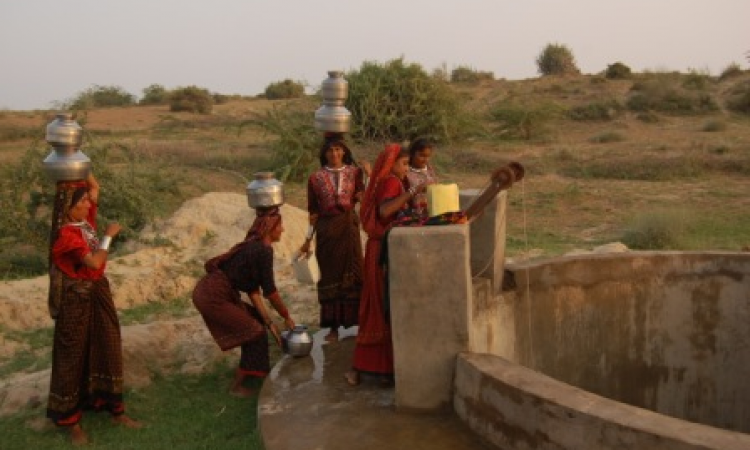
Water is not ‘gender-neutral’, especially in India. It is the woman of the house who walks an average of 6 km each day to collect water for household use. In the Kumaon region, a newly married bride visits the family spring to fetch water a day after the wedding, in a symbolic tradition of water responsibility. Gender still matters in issues concerned with water, and a review of the current status of women and water projects highlights the following points.
The link between women and water governance
- Water managers: Women traditionally collect and manage water at homes, and thus any change in water availability or quality affects them the most.
- Water access: Women spend a large amount of time and energy to fetch water, which affects their health & economic productivity.
- Water governance: Women are more then often sidelined as ‘ beneficiaries’ and are rarely engaged in the management strategies formulated. This takes away from the benefit intended to them.
Challenges faced by women in equitable distribution
- Irrigation programmes target agricultural water access more than they do domestic access.
- Lack of formal rights to land discourages womens' participation.
- Heavy workload and deemed social norms prevents their involvement along with low literacy rates and lack of formal education & skills.
Mountain women and water
Living in the fragile mountain eco systems, women here are more deeply affected by water shortages. A case study of Almora, Uttaranchal shows that this can change.
Benefits of improved access to water
With improved access to water, the overall development of women increases and the gender power imbalance is somewhat mitigated. Some of the benefits for women include:
- More income generation activities and increased financial independence
- Reduced poverty, vulnerability & migration
- Improved health, hygiene & nutrition
- Resource conservation through efficient usage
Actions to improve women involvement in water issues
- Increase womens' access to consultation & participation in proceedings
- Develop gender sensitive objectives and indicators
- Capture local perception and avoid generalization of women’s needs
- Set up gender responsive budgets
- Improve credit access to women
- Build separate platforms for women to voice their prorities
Conclusion
Water policies in the country are ‘weak’ from a gender perspective. Thus development plans need to be gender-sensitized, and women must be included in all levels of decision making to address the disproportionate access to resources. Generalization and mere quotas for women will not solve this gender bias. Involvement and empowerment of women are necessary for initiatives to succeed in the water sector.
This post presents a submission received for the Sustainable Mountain Development Summit-III held at Kohima, Nagaland, from September 25-27, 2013. Download the original submission below.